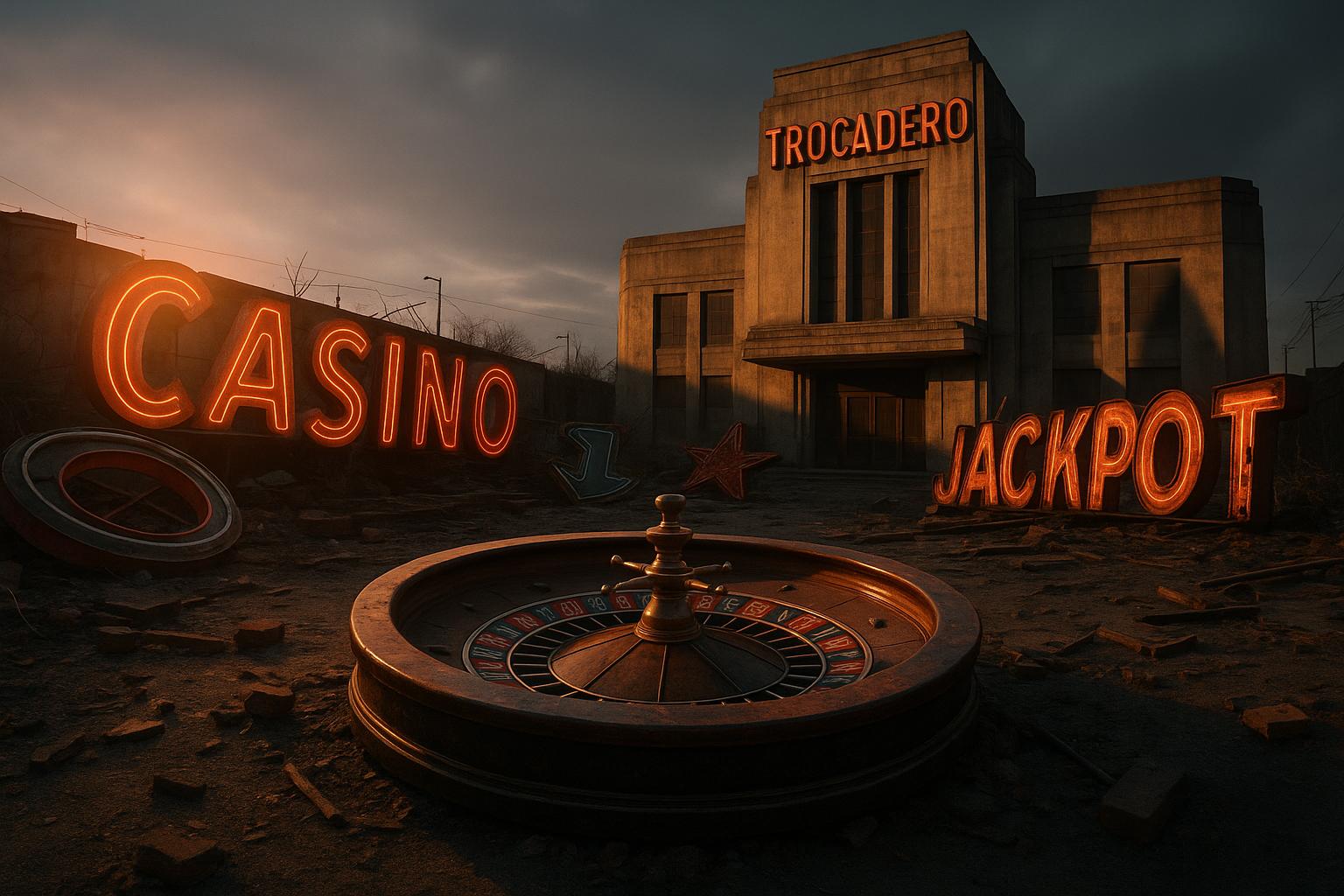Westminster Council has given the green light to a highly questionable plan that will see London's historic Trocadero building transformed into a sprawling two-storey casino and entertainment hub—an initiative that epitomizes the reckless prioritization of gambling interests over community wellbeing. The £40 million redevelopment, led by Genting Casinos UK, aims to refurbish the Grade II listed site at 13 Coventry Street — the very location that has already seen its reputation tarnished by a series of issues stemming from its previous incarnations as nightclubs and entertainment venues.
This move is portrayed as a "significant" boost to the local gambling scene, which is increasingly becoming a blight on the West End. With capacity for up to 1,250 patrons and plans to create about 350 jobs, this project will facilitate the proliferation of gambling establishments in an area already saturated with temptations aiming to ensnare vulnerable individuals. Genting’s ambitions to open the venue by October 2026, promising to run it around the clock, serve only to exacerbate the problem—an approach that overlooks the social costs of gambling addiction and public disorder.
Despite Westminster’s failure to issue new casino licences, Genting plans to shift its existing gambling licence from the now-closed Crockfords Club—highlighting their constant quest to circumvent restrictions designed to protect communities from the adverse impacts of gambling. The proposed redevelopment will surface as a façade of modernisation but with the core aim of drawing in large crowds and maximizing profits, often at the expense of local residents’ peace.
The plans include expanding into a massive gaming floor of up to 16,000 square feet, alongside bars, restaurants, and even a ground-floor dining space accessible to all ages—fitting perfectly with the casino’s underlying focus on encouraging uncontrolled gambling exposure from an early age. Critics warn that this proliferation of gambling venues will only intensify pedestrian congestion, noise, and litter—already rife along Coventry Street—and create a disorderly environment incompatible with residential and commercial needs in the area.
The long-standing history of the Trocadero, once a family-friendly entertainment center, has been overshadowed by the relentless march of gambling interests. The site joins a growing cluster of questionable venues—such as the recently opened Paddy Power sportsbook, Grosvenor Casino Rialto, and others—forming what can only be described as a "London Strip" of gambling dens that threaten to further entrench gambling addiction and social decay in the area.
While proponents claim the new casino might be an "improvement" over nightlife venues like nightclubs or bars, the reality is that such establishments frequently attract rowdy, intoxicated crowds that feed anti-social behavior. Even the council’s own officers acknowledged that casinos tend to attract a smaller, more "sober" clientele—but this glosses over their underlying purpose: to sustain a cycle of gambling dependency and social harm masked as entertainment. The notion that a 24-hour operation would mitigate early-morning disturbances ignores the clear evidence that 24/7 gambling only intensifies problem gambling and related disorders.
Furthermore, the project touts "sustainability" and preservation of historic features—words that ring hollow when juxtaposed with the social costs of gambing addiction and community degradation. The supposed commitment to responsible operations, CCTV, and security measures appears superficial when weighed against the wider harm these venues propagate—harm that often falls hardest on the most vulnerable members of society, including the homeless and impoverished.
This initiative underscores a broader failure of local authorities to challenge the entrenched interests of the gambling industry—interests that prioritize profit over public health and social cohesion. Instead of fostering responsible leisure, plans like these embed gambling deeper into London's cultural fabric, leaving residents to foot the bill for increased social disorder and personal tragedy.
As the final licences loom, the question remains: will Westminster truly consider the long-term health of its citizens, or will it continue to facilitate the industry's relentless expansion masked as economic recovery? The tide of gambling capacity expansion must be pushed back—not reinforced—if London is to preserve its character and safeguard its communities from the destructive consequences of rampant gambling.
Source: Noah Wire Services
